Finding the right dog foods for sensitive stomachs can be a game-changer, improving their quality of life and your peace of mind. This guide will help you navigate the world of sensitive digestion dog food and find the best dog food for your beloved companion.
What Causes Dogs to Have Sensitive Stomachs?
Sensitive stomachs in dogs can be caused by a variety of factors, including:
- Food Allergies or Intolerances: Just like humans, dogs can be allergic or intolerant to certain dog food ingredients.
- Dietary Indiscretion: Eating something they shouldn’t have, like garbage or table scraps.
- Underlying Medical Conditions: Certain health issues can affect digestion.
- Stress or Anxiety: Stress can sometimes manifest as digestive issues.
- Sudden Food Changes: Changing your dog’s food too quickly can upset their stomach.

How to Know if Your Dog Has a Sensitive Stomach
Recognizing the signs of a sensitive diet is the first step to helping your dog feel better. Dogs with sensitive stomachs may experience frequent vomiting, diarrhea, gas, or bloating. You might also notice changes in appetite, weight fluctuations, or signs of discomfort after meals.
Common Symptoms of a Sensitive Stomach:
- Vomiting
- Diarrhea
- Gas
- Loss of Appetite
- Weight Loss
- Lethargy
- Excessive licking of lips
- Changes in stool consistency
If you notice any of these symptoms, it’s important to consult with your veterinarian to rule out any underlying medical conditions.
Elimination Diet for Sensitive Dogs
One way to identify the culprit behind your dog’s stomach problems is through an elimination diet. This involves feeding your dog a novel protein source and carbohydrate source that they haven’t eaten before. This diet should be followed strictly for a set period (usually 8-12 weeks) to see if symptoms improve.
- Specially made for delicate dogs with allergies or food sensitivities who need a simpler, limited ingredient diet.
- Simple chicken and rice recipe is formulated to help calm your pup’s tummy during times of transition; also ideal for the dog prone to stomach…
- Enhanced with vitamins, minerals and nutrients to provide a balanced diet with no artificial flavors or colors and no wheat or wheat-gluten.
Dog Food Ingredients That Can Upset Stomachs
Certain dog food ingredients are more likely to cause gastrointestinal discomfort in dogs with fragile digestion. Here’s a breakdown:
- Protein: Common allergens include beef, chicken, dairy, and soy. Consider trying novel protein source like lamb, venison, or fish.
- Fiber: While fiber is important for digestion, too much can cause gas and bloating.
- Fat: High-fat foods can be difficult for some dogs to digest.
- Vitamins and Minerals: While essential, some artificial additives can trigger sensitivities.
Quality Ingredients
Foods made from real, whole ingredients are easier to digest and less likely to trigger digestive upset, while artificial additives, fillers, and preservatives can aggravate sensitive systems.
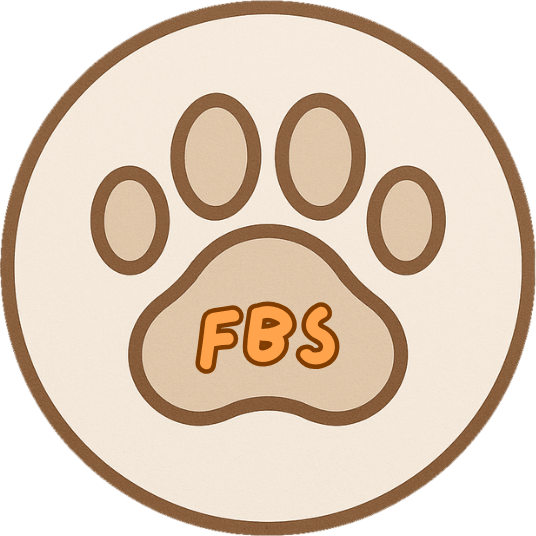
Paw Tip: Always check the first few ingredients on the label and the higher up a real protein source (like chicken, lamb, or fish) appears, the better.
How to Find a High-Quality Sensitive Digestion Dog Food
When searching for the best commercial dog foods for your sensitive pup, keep these points in mind:
- Read the Label Carefully: Pay attention to the ingredient list and guaranteed analysis.
- Look for Limited Ingredient Diets: These diets contain fewer ingredients, making it easier to identify potential allergens.
- Consider Grain-Free Options: While not always necessary, grain-free diets can be helpful for dogs with grain sensitivities.
- Talk to Your Vet: Your veterinarian can recommend specific allergy-friendly diets based on your dog’s individual needs.
Best Commercial Dog Foods for Sensitive Stomachs
There are many excellent dog foods for sensitive stomachs available on the market. Your vet can help you choose the best option, but some popular choices include:
- Hill’s Science Diet Sensitive Stomach & Skin
- Purina Pro Plan Veterinary Diets HA Hydrolyzed
- Royal Canin Veterinary Diet Gastrointestinal
- Precise balance and highly digestible ingredients for sensitive stomachs and for dogs with sensitive skin
- Prebiotic fiber to fuel beneficial gut bacteria and support a balanced microbiome
- Omega-6s & Vitamin E to promote a healthy coat
- Made in the USA with global ingredients you can trust
- #1 Veterinarian Recommended
- Formula contains hydrolyzed protein sources
- Single carbohydrate source
- Highly digestible to promote optimal nutrient absorption
- High-quality protein
- Contains antioxidants
- A combination of highly digestible proteins, prebiotics and EPA & DHA helps support digestive health
- A low fat concentration, while providing a maintenance energy level, helps dogs with difficulties in digesting fat
- 100% Satisfaction Guaranteed
“Complete and Balanced” Dog Food Formulas
Always choose a dog diet that is labeled “complete and balanced” by AAFCO (Association of American Feed Control Officials). This ensures that the food provides all the essential vitamins and minerals your dog needs.
- Crunchy dog kibble combined with tender, shredded pieces for taste and texture dogs love. High protein dog food dry recipe, with real chicken as the first ingredient
- Real meat dog food fortified with live probiotics for dogs to help maintain gut microbiome resilience
- Vitamin A and omega-6 fatty acids to nourish skin and coat. Natural prebiotic fiber for dogs helps deliver digestive support
- Dry dog food with a high protein level to support strong muscles, including a healthy heart. Contains rice, an excellent source of carbohydrates for energy
- Ingredients are carefully selected to provide key nutrients pets need. Purina Pro Plan dog food offering 100 percent complete and balanced nutrition for adult dogs
Dog Food Label Analysis
Understanding how to read a dog food label is crucial. Ingredients are listed in descending order by weight. Look for named meat sources (e.g., “chicken” instead of “poultry”) and avoid foods with excessive fillers or artificial additives.
Transitioning Your Dog to a Different Food
When switching to a new food, do so gradually over 7-10 days to avoid upsetting your dog’s stomach. Mix a small amount of the new food with the old food, gradually increasing the amount of new food each day.
Homemade Meals for Dogs with Sensitive Stomachs
While convenient, homemade dog food can be a great option for dogs with sensitive stomachs, as it allows you to control every ingredient. However, it’s crucial to work with a veterinary nutritionist to ensure that your homemade dog food recipe is complete and balanced.
- If your dog could read the label on their kibble
- they’d probably run!You’ve done your best
- You’ve tried the “premium” brands
- You’ve read the labels
- You’ve trusted the shiny packaging and the buzzwords like “natural” and “grain-free
Veterinary Prescription Diets for Dogs
Your veterinarian may recommend a veterinary prescription diet specifically formulated for dogs with severe digestive issues. These diets often contain hydrolyzed proteins, which are broken down into smaller pieces to reduce the risk of allergic reactions.
Puppy Nutrition Considerations
Puppies with sensitive stomachs require special attention. Choose a puppy food that is specifically formulated for sensitive stomachs and follow your veterinarian’s recommendations for feeding amounts.
Feeding Guidelines
How Much Food Does Your Dog Need?
Feeding a dog with a sensitive stomach requires more than just choosing the right food it’s about how, when, and how much you feed them.

Paw Tip: Proper portioning, consistent meal times, and gradual transitions between foods can help minimize digestive upset and keep your dog comfortable and healthy.
The amount of food your dog needs depends on their age, breed, activity level, and metabolism. Follow the feeding guidelines on the dog food label, but adjust as needed to maintain a healthy weight.
The Role of Probiotics & Prebiotics for Managing Sensitive Stomachs
Probiotics and prebiotics can play a significant role in managing sensitive stomachs by promoting a healthy gut microbiome. Probiotics are beneficial bacteria that help to balance the gut flora, while prebiotics are non-digestible fibers that feed these beneficial bacteria.
- Age Range Description: All Life Stages
- Also contains prebiotics.
- Can be used long term.
- Number one probiotic supplement recommended by veterinarians (Kantar Veterinary Tracker, 2020)
- Probiotic supplement for the dietary management of puppies and adult dogs with diarrhea
- Contains a probiotic for dogs proven to promote intestinal health and balance
- Promotes a strong immune system and contains antioxidants for dogs
- Easy-to-feed dog supplement powder
Final Thoughts on Dog Food for Sensitive Stomachs
Finding the right dog foods for sensitive stomachs can be a journey, but it’s well worth the effort. By understanding the causes of sensitive stomachs in dogs, recognizing the symptoms, and choosing high-quality, allergy-friendly dog food, you can help your furry friend live a happier, healthier life, free from tummy trouble. Always consult with your veterinarian for personalized recommendations and to rule out any underlying medical conditions.

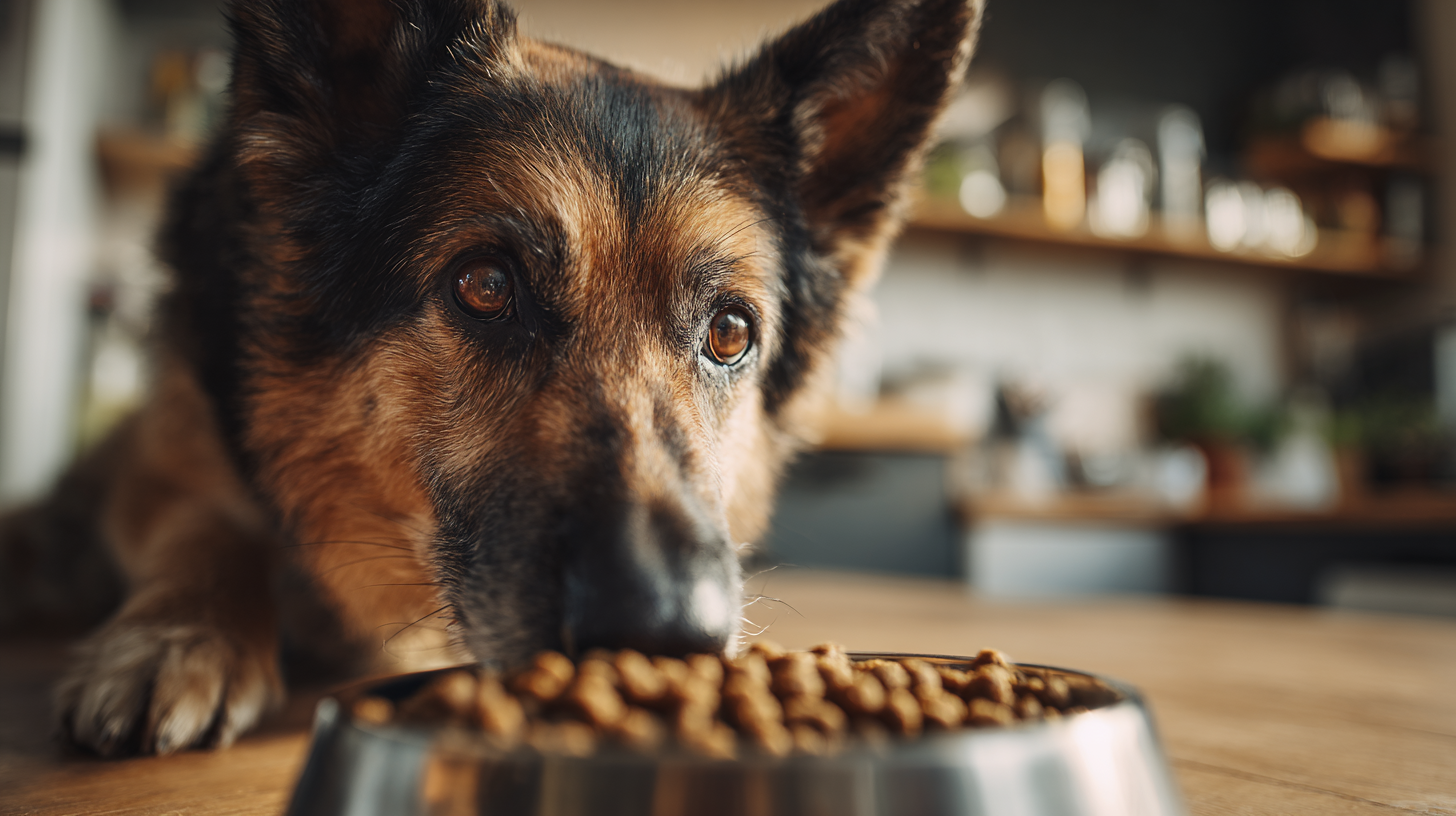
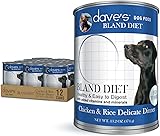




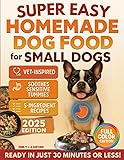
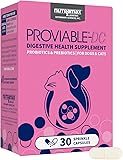
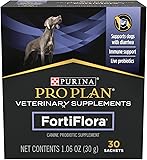
Leave a Reply